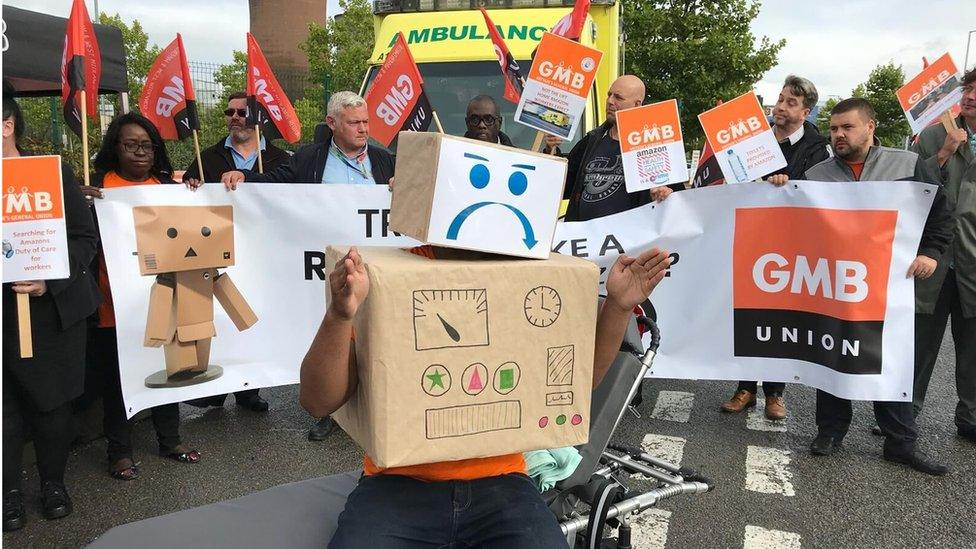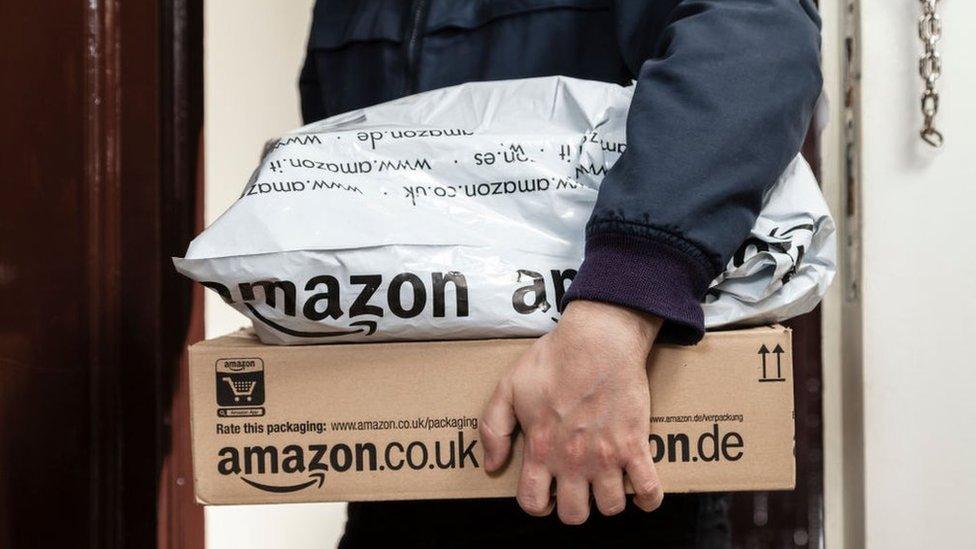Amazon's Rugeley site 'one of most dangerous in Britain'
- Published
Amazon worker: There's not enough time for toilet breaks
Members of the GMB union have protested outside an Amazon depot, describing it as "one of the most dangerous places to work in Britain".
Figures show there were 115 ambulance call-outs to the firm's Rugeley site in the last three years.
Incidents included major trauma, pregnancy and maternity problems, strokes and electric shocks.
The firm said it was a "safe place to work" and that most injuries were "not work-related".
The union said one pregnant worker had to stand for 10 hours a day, despite asking for reassignment.
A Freedom of Information request by the GMB to West Midlands Ambulance Service detailed 24 incidents of chest pain, two electric shocks and 10 cases of trauma among call-outs received between 2015 and 2017.
Amazon Services UK, which operates the "fulfilment centres", employs about 1,800 staff at Rugeley.

The GMB union said workers at the Amazon site were being treated "like robots"
According to reports to the Health and Safety Executive, its business had "43% fewer injuries on average than other transportation and warehousing companies in the UK", the firm said.
'Treated like robots'
It said ambulance call-outs across all its fulfillment centres in the UK "occurred at a rate of 0.00001 per worked hour", which it described as "dramatically low".
Rebecca Mitchell, from the GMB, said the company was "burying their head in the sand" regarding problems in Rugeley and that workers were "treated like robots".
By comparison, the union said an FoI request about a Tesco distribution centre in Lichfield, which employs about 1,300 staff, showed eight ambulance call-outs over the same period.
Amazon said the call-outs in Rugeley were "predominantly associated with personal health events and are not work-related".
In the case of pregnant workers, it said if an employee's health or that of the child was at risk it would "vary the employee's conditions".
It also urged people to take a public tour of its centres.
- Published4 September 2018
